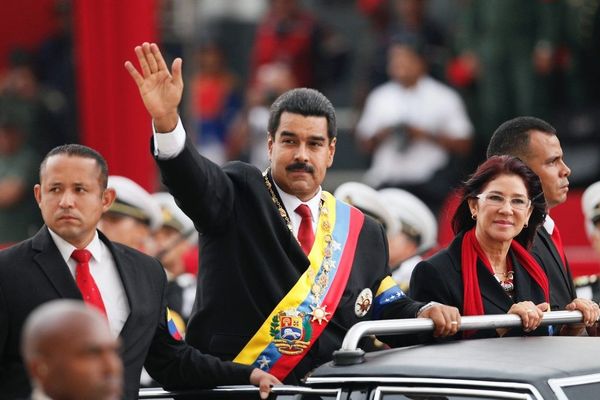In his readout of the two hour and 15 minute meeting between U.S. President Donald Trump and Russian President Vladimir Putin, U.S. Secretary of State Rex Tillerson said Trump repeatedly brought up Russian meddling in the U.S. election during the meeting. In his words, the two leaders had “a very robust and lengthy exchange on the topic,” but Putin denied Russian involvement. Russian Foreign Minister Sergei Lavrov, described as being particularly irritable during his news conference, said Trump accepted Putin’s denials. The Cipher Brief spoke with General Michael Hayden, former Director of the CIA and NSA to get his take on what we know about this first meeting between Trump and Putin.
The Cipher Brief: The meeting is said to have ran over by more than an hour. Afterwards, Tillerson said there was a “clear positive chemistry between the two,” and that the meeting went so long because “neither one of them wanted to stop.” Given the Trump Administration’s position on Russia, is that surprising at all?
General Michael Hayden, former CIA and NSA Director: First of all, we really don't know a whole lot about what happened at the meeting. What I have been able to see is Secretary Tillerson's readout to the press. Based on that caveat, a couple of quick observations: the length of the meeting is probably not surprising.
If there had been some sort of a blowup, it would've gone shorter, but I really didn't expect that, and the personal chemistry thing is also not surprising. It was probably in both presidents’ interest to establish some sort of dialogue, and frankly, President Trump does seem to be more comfortable with autocrats than democrats.
TCB: Tillerson said Trump repeatedly brought up Russian meddling in the U.S. election during the meeting, and Lavrov indicated Trump accepted Putin’s denials. Have we made any progress or was this just for show?
Hayden: It was inevitable that President Trump would bring up the election interference issue. He really couldn't avoid that. But I was struck by Secretary Tillerson's choice of words that the president brought up “the concerns of the American people” with the Russian interference, not President Trump's concerns.
TCB: Tillerson said Trump “is rightly focused” on how to “move forward from something that may be an intractable disagreement at this point.” Can the U.S. simply set this dispute aside and move forward with the relationship?
Hayden: No surprises with the Putin denial, but I was a little disappointed that Secretary Tillerson said they didn't spend a lot of time re-litigating the past and the focus was on moving forward. My read on that is that President Trump is done complaining to the Russians about their electoral interference, and he certainly isn't about to punish them any further for it.
TCB: Apparently there was agreement to set up a working group to establish a framework on cyber crime and non-interference in elections. Is that enough?
Hayden: The agreement for further work on non-interference in each other's internal affairs is pretty much fluff.
TCB: We’re told the two leaders did discuss other issues, including Ukraine, North Korea, and a ceasefire in Syria. Do you think the Trump Administration will now work more aggressively with Russia on issues of mutual concern?
Hayden: We need to learn a little bit more about the de-escalation zone in Syria. What are its geographic parameters? Is it a narrowly defined ceasefire or is it conceding a significant Russian role in Syria and an expansion of Syrian government control over territory there?












